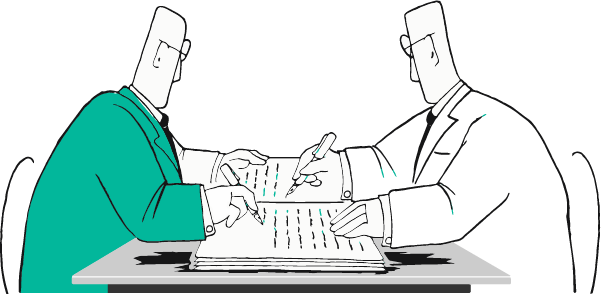What Is Probate and How to Avoid It
It's a court process to determine if a will is effective
|
In Massachusetts, the probate of the Last Will near Lexington or Boston is central to the Will becoming effective. Until someone probates the Will, the will is just several pieces of paper with a staple connecting them.
Background: After your death, someone needs to give your assets to someone else or to a charity. Maybe to more than one person. Either you have no will, a will, or a MA revocable trust. You can have both a will and a Massachusetts living trust - this is common. If you do NOT have a will, someone will distribute your assets to your heirs, pay your debts, and look after any loose ends. The word 'heirs' is just another word for your nearest relatives in the eyes of the law. The law of each state determines who these people are, but the laws of most states are similar. If you have signed a will, the Will will replace the default 'heirs' of your nearest relatives. The will's terms supercede the terms of the default law. The default law is called the law of being 'intestate.' or having no will. Because after death, you obviously can't sign the deeds, write the checks, or handle your business affairs, a person approved by the probate court takes over those duties. There are necessary steps to settling an estate Step One: Filing Petition and Gathering Material Your family will get started by getting an estimate of your assets. Then, with a will in hand or none at all, they will file a written request to the local probate court for the will to be accepted as your last will. They will be asking in the court to (1) accept the will as your last wishes, proper in form, and (2) appoint a person or two to be in charge of your will and other duties that need attention. In addition to recognizing the will's legal validity, they will ask the court to appoint a Personal Representative. Under earlier law, this was called the Massachusetts Executor. Step Two: Publishing Notice to Creditors Due process of law requires that any creditors have a chance to get paid at your death. Each state has a law that requires some public notice of your death. In some mid-Western states, the type of necessary notice is more than Massachusetts law requires when you die. In Massachusetts, the notice must be in the newspaper once. But in other states, there may be up to 3 repeated notices published in the local newspaper. And there may be a law that requires the Personal Representative to send a letter to every known creditor - telling them of your death. Creditors are notified either by a single legal notice in the newspaper or directly by mail (states outside of Massachusetts and therefore not subject to Massachusetts probate law). The notice will inform the creditor the amount of time they have to file a claim in the probate court to ask it be paid from your probate estate. Each state law sets a period in which the creditor must act or lose the right to be paid. In Massachusetts, the creditor period is one year from the death. Other states may have a shorter or longer time frame. And there are exceptions to this one year rule of law. RETURN To Estate Planning Page Step Three: Inventory and Appraise Assets Another step is for you to compile a list of assets the deceased owned in their SOLE name. These are the assets that pass under the Will. You may have owned other assets that was not sole ownership. Assets such as joint assets or retirement accounts such as 401(k) or IRA accounts do not pass under a Will. It is not that unusual for a married person to own little or no assets in their sole name. If all assets are joint, on the first death, the will may not need to be brought through the probate process. But because we have in Massachusetts a Massachusetts estate tax, it is necessary to compile a list of ALL assets of the deceased. Whether they were owned in their sole name or in another way, say joint or retirement accounts or life insurance. Step 4: Consider whether your estate needs to file a Massachusetts Estate tax return and whether your estate needs to pay MA estate tax Massachusetts still has an estate tax. Many other states have eliminated an estate tax. It is important to remember that MA has an estate tax because the MA exemption from estate tax is considered low - it is a total of $1 million of assets. And this includes ALL assets you die with - including 1/2 of joint assets and your retirement IRA accounts and life insurance on your life. You may or may not PAY Massachusetts estate tax. But your family will need to file a MA estate tax return called an M706 if your gross estate is over $1 million. Step 5: File Income tax returns and distribute the assets and prepare a report of how you distributed the assets - the Accounting There are many other steps the Personal Representative needs to take after you die. It is a period that is full of details. It is these details that can make the role of handling your estate possibly painful for a non-detailed person to handle. The final step of compiling an asset list and listing of all income, debts, and distributions, is called the Accounting. It includes listing all the interest and dividend payments received after your death and then the amount of any estate tax or other taxes paid. At our office, we have been through the post-death process almost 200 times and know what to do. Call 781 863-8606 to speak with us. |

